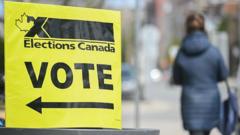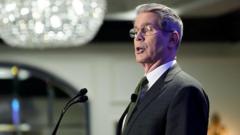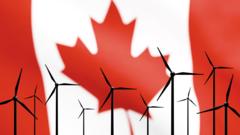In a remarkable turnout, over 7 million Canadians have already cast their votes in advance polling, marking a historic achievement in the country’s electoral history. According to Elections Canada, this year saw a 25% increase in early voting compared to the last election in 2021, with a significant two million ballots submitted on just the first day of early voting alone. The advance polling period spanned four days, coinciding with the Easter long weekend, attracting long lines at polling stations nationwide.
Record Early Voting in Canada: 7.3 Million Ballots Cast Ahead of Election Day

Record Early Voting in Canada: 7.3 Million Ballots Cast Ahead of Election Day
Early voter turnout surges as Canada prepares for crucial federal elections, signaling high engagement among citizens.
With election day approaching on April 28, federal leaders are ramping up their campaigns amid key issues like the ongoing trade tensions with the United States and President Donald Trump’s controversial remarks regarding Canada. Approximately a quarter of eligible Canadian voters have participated early, and mail-in voting has also risen, with over 754,000 ballots submitted, surpassing the previous election's totals.
In the current political landscape, polls indicate the Liberal Party holds a 5-point lead over the Conservative Party. Liberal leader Mark Carney has emphasized his party’s capability to tackle the challenges posed by U.S. trade policies, while Conservative leader Pierre Poilievre pitches himself as the face of change, directing attention towards Canadian concerns over living costs and governance. The Bloc Quebecois and New Democratic Party follow behind in the polls, suggesting a competitive election ahead.
As Canada faces pivotal variables affecting its governance, the record early turnout highlights a pronounced civic engagement, setting the stage for potentially transformative political outcomes.
In the current political landscape, polls indicate the Liberal Party holds a 5-point lead over the Conservative Party. Liberal leader Mark Carney has emphasized his party’s capability to tackle the challenges posed by U.S. trade policies, while Conservative leader Pierre Poilievre pitches himself as the face of change, directing attention towards Canadian concerns over living costs and governance. The Bloc Quebecois and New Democratic Party follow behind in the polls, suggesting a competitive election ahead.
As Canada faces pivotal variables affecting its governance, the record early turnout highlights a pronounced civic engagement, setting the stage for potentially transformative political outcomes.





















